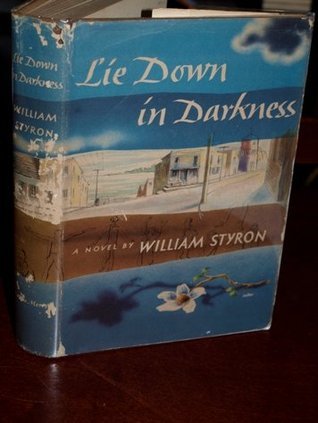What do you think?
Rate this book


400 pages, Hardcover
First published January 1, 1951
...yet so archetypical is this South with is cancerous religiosity, its exhausting need to put manners before morals, to negate all ethos-- Call it a husk of a culture.
Halfway between the railroad station and Port Warwick proper - a distance altogether of two miles - the marshland, petering out in disconsolate, solitary clumps of cattails, yields gradually to higher ground. Here, bordering on the road, an unsightly growth of weeds takes over, brambles and briars of an uncertain dirty hue which, as if with terrible exertion, have struggled through the clay to flourish now in stunted gray profusion, bending and shaking in the wind. The area adjacent to this stretch of weeds is bleakly municipal in appearance: it can be seen from the road, and in fact the road eventually curves and runs through it. Here there are great mounds of garbage; a sweet, vegetable odor rises perpetually on the air and one can see - from the distance faintly iridescent - whole swarms of carnivorous flies blackening the garbage and maybe a couple of proprietary rats, propped erect like squirrels, and blinking sluggishly, with mild, infected eyes, at some horror-stricken Northern tourist.
There were wide barren fields now, a patch of river to the south, the Rappahannock; this was territory that they knew, where one lane, one house or barn, gliding soundlessly past the car's vaultlike silence, only announced another house or lane or barn a few yards farther on, each more familiar as they drew closer to home. This was the Northern Neck, a land of prim pastoral fences, virgin timber, grazing sheep and Anglo-Saxons: these, the last, spoke in slumbrous Elizabethan accents, rose at dawn, went to bed at dusk, and maintained, with Calvinist passion, their traditional intolerance of evil. Most were Presbyterians and Baptists, many were Episcopalians, and all prayed and hunted quail with equal fervor and died healthily of heart failure at an advanced age; destiny had given them a peaceful and unvanquished lang to live in, free of railroads and big-city ways and the meretricious lures of the flesh, and when they died they died, for the most part, in contentment, shriven of their moderate, parochial sins. They were bounded by two rivers and the sky, and were as chary of the hinterland as of the deepest heart of Africa. A sturdy and honest curiosity filled their minds, provided the objects of such were not exotic or from the North, and the smell of sea filled their days; exacting in all matters, moral but never harsh, they lived in harmony with nature and called themselves the last Americans.